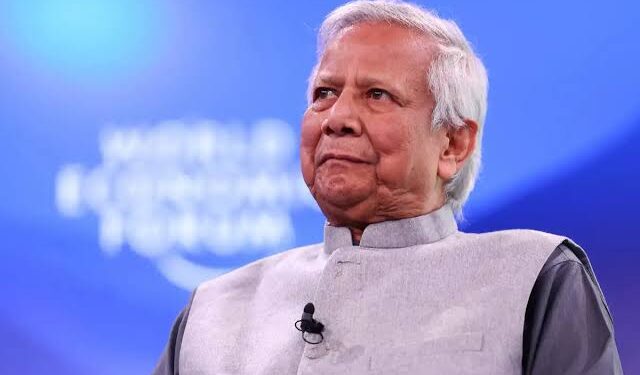Bangladesh’s interim leader Muhammad Yunus has reportedly threatened to resign if political parties fail to support his administration, amid rising pressure to set a clear path for national elections.
The development marks a critical juncture for the transitional government that came to power following last year’s mass student-led uprising.
According to AFP, unnamed sources within Yunus’s office revealed that the Nobel laureate and current chief adviser considered stepping down but was dissuaded by cabinet members.
“He wanted to tender his resignation, but his cabinet members persuaded him not to,” the source told AFP.
On Thursday, thousands of Bangladesh Nationalist Party (BNP) supporters marched through Dhaka, demanding a concrete election roadmap. It was the first significant public protest against Yunus’s administration.
Nahid Islam, leader of the National Citizen Party (NCP) and a key ally of Yunus, confirmed the resignation rumors in a statement to BBC Bangla:
“He said he is thinking about it. He feels the situation is such that he cannot work.”
Islam urged Yunus to remain in office:
“For the sake of the country’s stability and the aspirations of the uprising, he must stay strong.”
Yet, Islam acknowledged that Yunus may step down if political backing continues to erode.
Adding to the tension, Army Chief General Waker-Uz-Zaman issued a stark warning on Wednesday, stating that elections must be held by December or earlier.
“Bangladesh is passing through a chaotic phase,” he said, according to local reports.
“The structure of the civil administration and law enforcement agencies has collapsed.”
The military has played a crucial role in Bangladesh’s ongoing transition. It was instrumental in facilitating the exit of former Prime Minister Sheikh Hasina and supported Yunus’s elevation to interim leadership.
BNP senior leader Khandakar Mosharraf Hossain stressed the urgency of an electoral roadmap:
“If the government fails to meet public expectations, it will be difficult for the BNP to continue extending its support.”
While Yunus previously pledged that elections would be held by June 2026, BNP leaders now demand a more immediate and specific timeline.
Yunus’s transitional administration was born from hope and revolution, but its legitimacy now hangs in the balance. With the military’s warning, opposition pressure mounting, and no confirmed polling date in sight, the future of Bangladesh’s political transition appears increasingly uncertain.
Should Yunus resign, Bangladesh may face further instability unless a consensus on elections is swiftly reached.





























